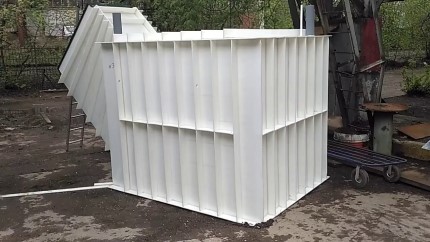What material to choose for a basement device: useful tips |
|
When it comes to choosing a cellar for your home, there are several options available on the market. Two popular choices are plastic cellars and wooden cellars. While both have their benefits, there are several key differences that set them apart. In this article, we'll explore the advantages of plastic cellars over wooden cellars and why they may be the better option for homeowners in Europe.
DurabilityOne of the main advantages of plastic cellars over wooden cellars is their durability. Plastic is a highly resilient material that can withstand a wide range of weather conditions, including extreme heat, cold, and moisture. This makes plastic cellars ideal for outdoor use and means they can last for many years without showing signs of wear and tear. In contrast, wooden cellars are prone to rot, mold, and decay over time, especially when exposed to damp conditions. MaintenanceAnother advantage of plastic cellars is that they require very little maintenance. Unlike wooden cellars, which require regular cleaning, sanding, and painting to maintain their appearance and prevent decay, plastic cellars only need occasional cleaning with soap and water to stay in good condition. This makes them a convenient and hassle-free option for busy homeowners. InstallationPlastic cellars are also easy to install compared to wooden cellars. They come in pre-fabricated sections that can be quickly assembled and installed by a professional or a DIY enthusiast. In contrast, wooden cellars require skilled craftsmanship to construct and install, which can add to the overall cost and time required for the project. CostWhen it comes to cost, plastic cellars are often a more affordable option than wooden cellars. This is because they are made from cheaper materials and require less labor to manufacture and install. Additionally, plastic cellars are energy-efficient and can help to reduce heating costs in the winter months, making them a cost-effective investment over the long term. Environmental ImpactFinally, plastic cellars are a more environmentally friendly option than wooden cellars. They are made from recyclable materials and can be easily recycled or repurposed at the end of their lifespan. In contrast, wooden cellars require the harvesting of trees, which can have a significant impact on the environment. In conclusion, while wooden cellars have their benefits, plastic cellars are a more practical, cost-effective, and environmentally friendly option for homeowners in Europe. With their durability, low maintenance requirements, ease of installation, and affordability, plastic cellars are a smart investment for anyone looking to add extra storage space to their home. So, if you're in the market for a cellar, consider investing in a plastic cellar and enjoy the many benefits it has to offer! |
